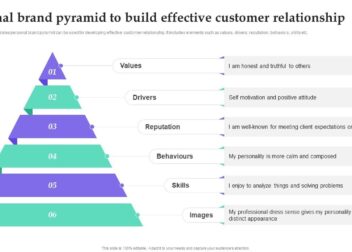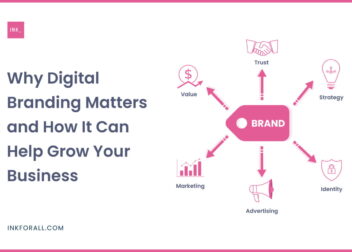From ‘Nice to Know’ to ‘Need to Know’: The Rise of the Educator Brand
A few years ago, I sat in a coffee shop, scrolling through my phone, when I stumbled across a video of a high school teacher explaining calculus in a way that made my brain light up. I hadn’t thought about math since college, and yet there I was, glued to my screen, nodding along as she broke down derivatives like she was sharing a recipe for her favorite soup. She wasn’t just teaching; she was magnetic—confident, clear, and somehow making math feel like a story I wanted to hear. That moment stuck with me. It wasn’t just about calculus. It was about how someone could take something “nice to know” and turn it into something I needed to understand. That’s when I started noticing it everywhere: educators, not just in classrooms but in businesses, on social media, in boardrooms, were becoming brands in their own right. And it’s changing the game for entrepreneurs, brand strategists, and small business owners who want to stand out.
This shift isn’t about slapping a logo on a website or posting a few polished headshots. It’s about something deeper—something human. The rise of the educator brand is about owning your expertise and sharing it in a way that pulls people in, builds trust, and makes them feel like they’re part of something bigger. I’ve seen it firsthand, working with clients who started as “just” consultants or coaches and ended up with loyal followings because they didn’t just sell a service—they taught their audience something valuable. They turned their knowledge into a brand identity that felt alive, not a static pitch.
Think about it: when was the last time you bought something because of a flashy ad versus because you learned something from the person selling it? My guess is the latter stuck with you more. That’s because people crave connection, not just consumption. In a world drowning in information, the ones who teach—really teach—cut through the noise. They’re not just delivering a customer experience; they’re creating aha moments. I worked with a fitness coach once who didn’t just post workout videos. She explained why certain movements worked, how muscles connected, and what mindset shifts made exercise sustainable. Her followers didn’t just buy her programs; they quoted her like she was their personal guru. That’s the power of an educator brand—it’s not about selling; it’s about sharing.
But here’s the thing: building this kind of brand development isn’t as simple as posting a few tutorials or writing a blog. It’s about intention. You have to know your stuff cold, sure, but you also have to know how to share it in a way that’s uniquely you. I’ve seen marketing professionals get this wrong by trying to mimic someone else’s voice or chasing trends. It flops every time. People can smell inauthenticity a mile away. The fitness coach I mentioned? Her secret wasn’t just her knowledge—it was her quirks. She’d laugh at her own bad jokes, share stories about her dog interrupting her workouts, and admit when she struggled with consistency herself. That’s what made her relatable. That’s what made her brand positioning unshakeable.
So, how do you do this? Start by asking yourself: What do I know that someone else needs? Not just wants—needs. Maybe you’re a small business owner who’s cracked the code on managing cash flow during lean months. Or a creative director who’s mastered the art of pitching bold ideas to conservative clients. Whatever it is, your expertise is your currency. But it’s not enough to just have it—you have to package it in a way that feels generous. This is where brand strategy comes in. It’s about creating a system—not just a logo or a tagline, but a brand system that weaves your knowledge into every touchpoint. Your website, your social posts, your emails, even the way you talk to clients in person—it all has to feel cohesive, like chapters in the same book.
One mistake I see a lot is people thinking they need to give everything away for free to prove their value. That’s a trap. An educator brand isn’t about dumping all your knowledge into the world and hoping someone pays you later. It’s about giving just enough to spark curiosity, to make someone think, “Wow, if this is what they share for free, what’s in their paid stuff?” I worked with a brand strategist who used to give hour-long webinars packed with insights on strategic branding. By the end, people were practically begging to hire her—not because she gave away the farm, but because she showed them what was possible. She’d share one actionable tip, like how to align your visuals with your brand consistency, and then hint at the bigger framework she used with clients. It was a tease, but it felt generous, not manipulative.
This approach also forces you to get clear on your brand positioning. You can’t teach what you don’t fully understand yourself. I remember sitting down with a client who ran a boutique marketing agency. She was great at what she did, but her messaging was all over the place—one day she was talking about SEO, the next about influencer campaigns. We spent hours digging into what made her unique: her ability to translate complex data into stories that clients could actually use. That became her brand identity, and suddenly her content—blog posts, LinkedIn updates, even her pitches—had a clear thread. She wasn’t just a marketer; she was a teacher who made data feel human. Her business growth took off because clients didn’t just hire her—they trusted her.
The beauty of this shift from “nice to know” to “need to know” is that it’s not just for big names or influencers with millions of followers. Anyone with expertise can do this. I’ve seen entrepreneurs with tiny audiences build cult-like followings because they focused on teaching something specific and doing it with heart. A baker who shares the science behind perfect sourdough. A financial advisor who breaks down investing for people who’ve never touched a stock. These aren’t just businesses—they’re movements. And movements start with someone who’s willing to show up, share what they know, and make it matter.
The catch? It takes work. You have to commit to brand consistency, not just in your visuals but in your voice, your values, your vibe. You have to keep showing up, even when it feels like no one’s listening. And you have to be okay with being a little vulnerable—sharing the why behind what you do, not just the what. But when it clicks, it’s magic. You’re not just building a business; you’re building a legacy.
So, what’s the one thing you know that someone out there needs to hear? What’s the story only you can tell? Take that, wrap it in a marketing strategy that feels like you, and start teaching. Not because it’s trendy, but because it’s human. Because in a world of noise, the ones who teach with heart are the ones we remember.



